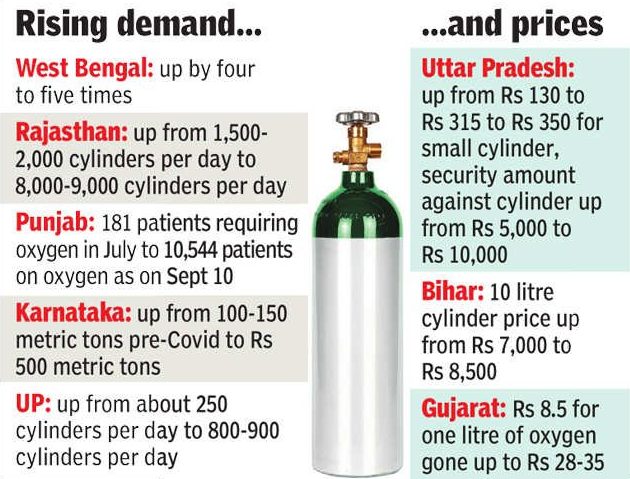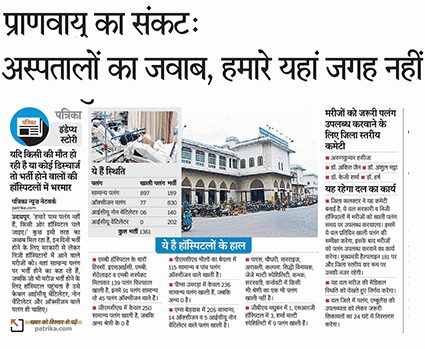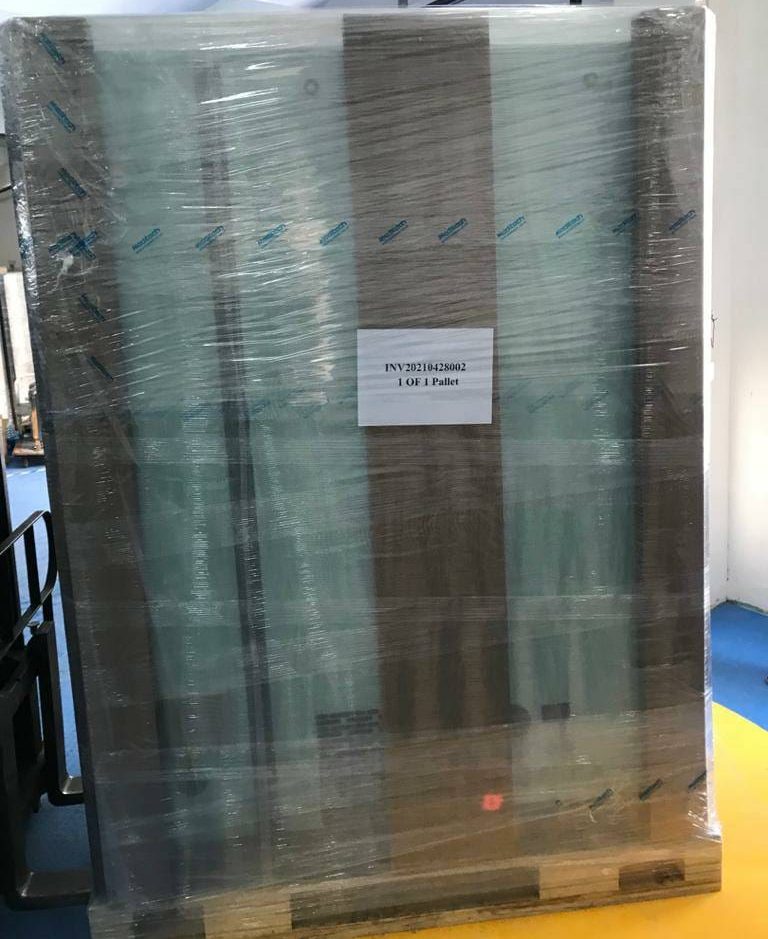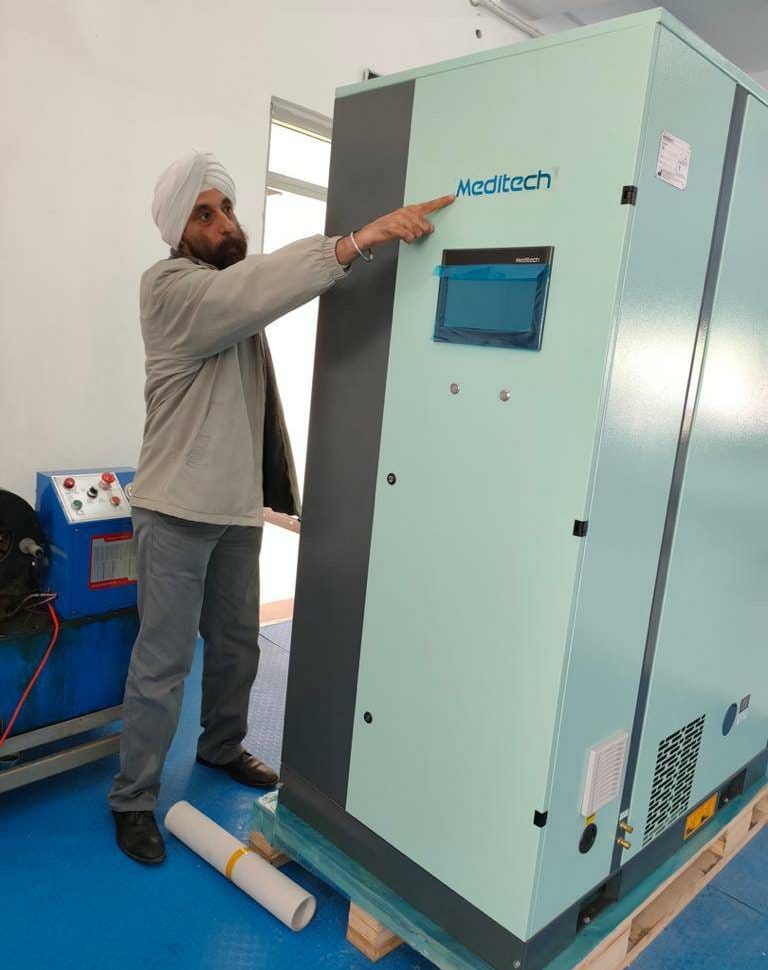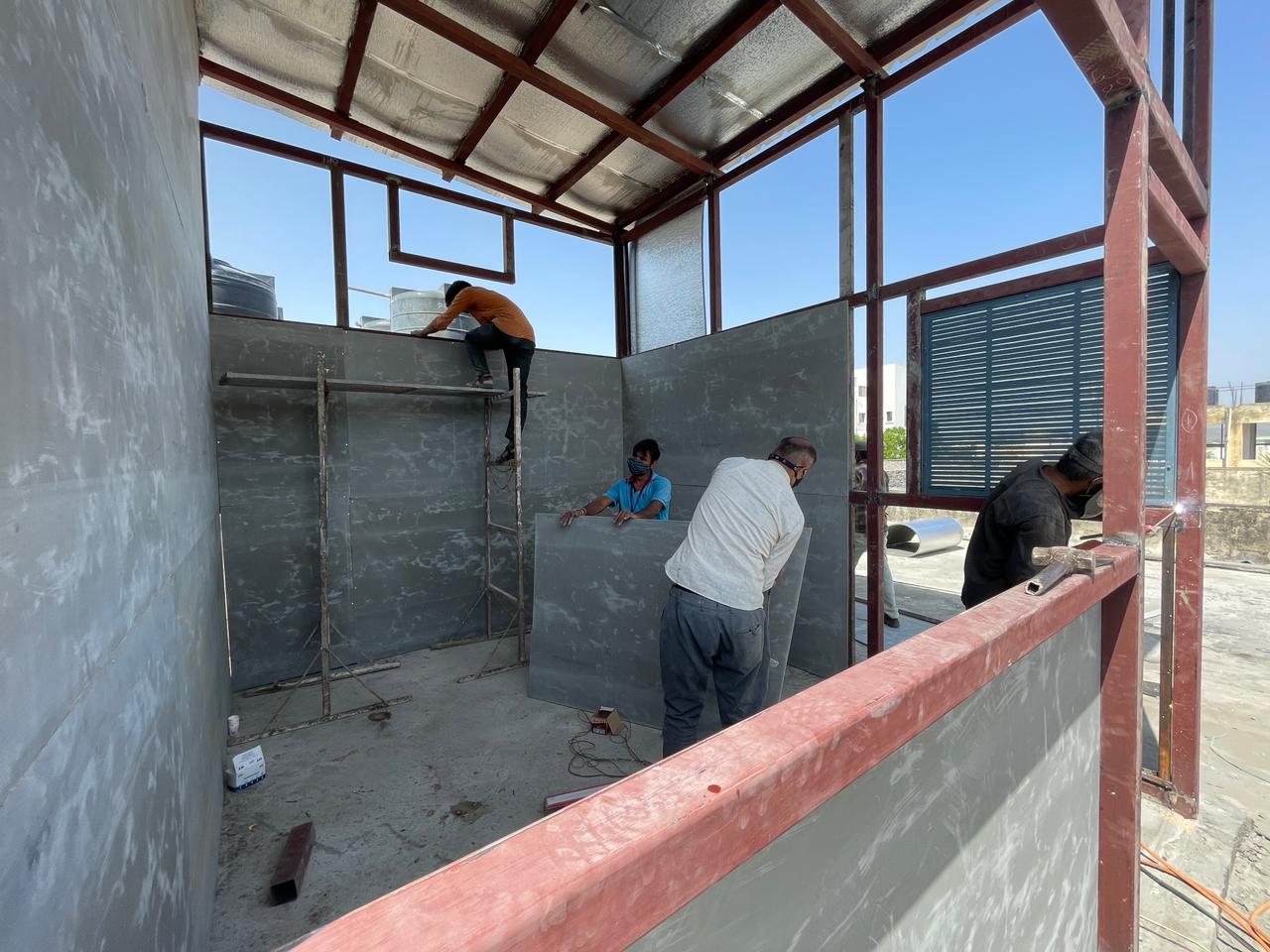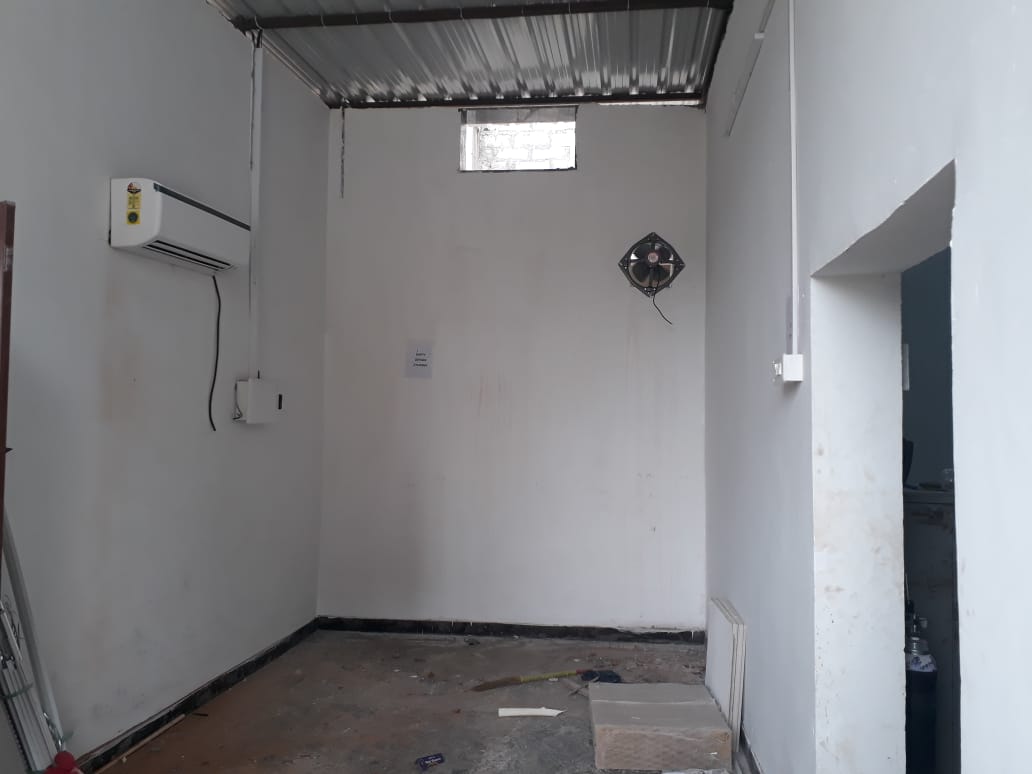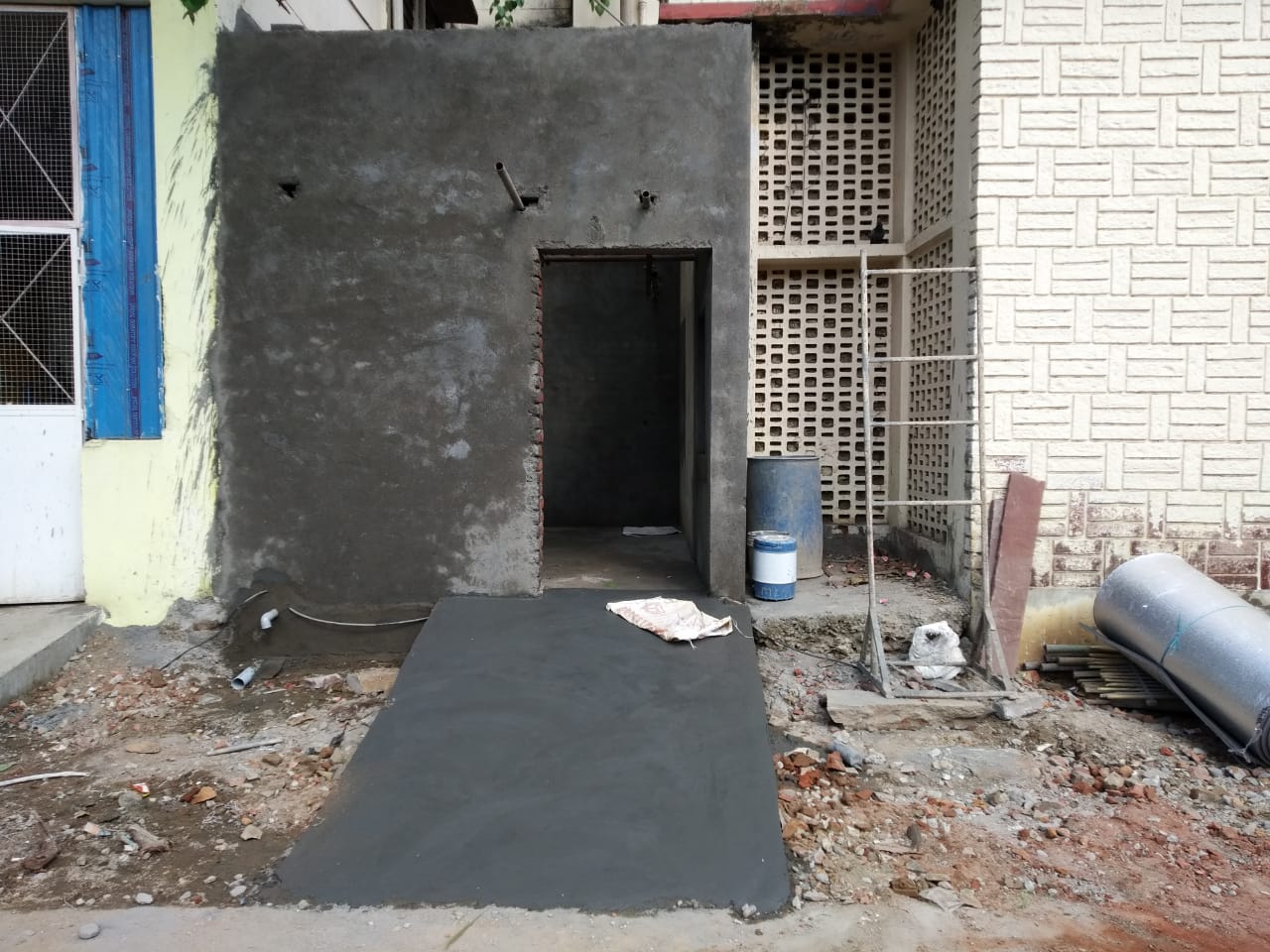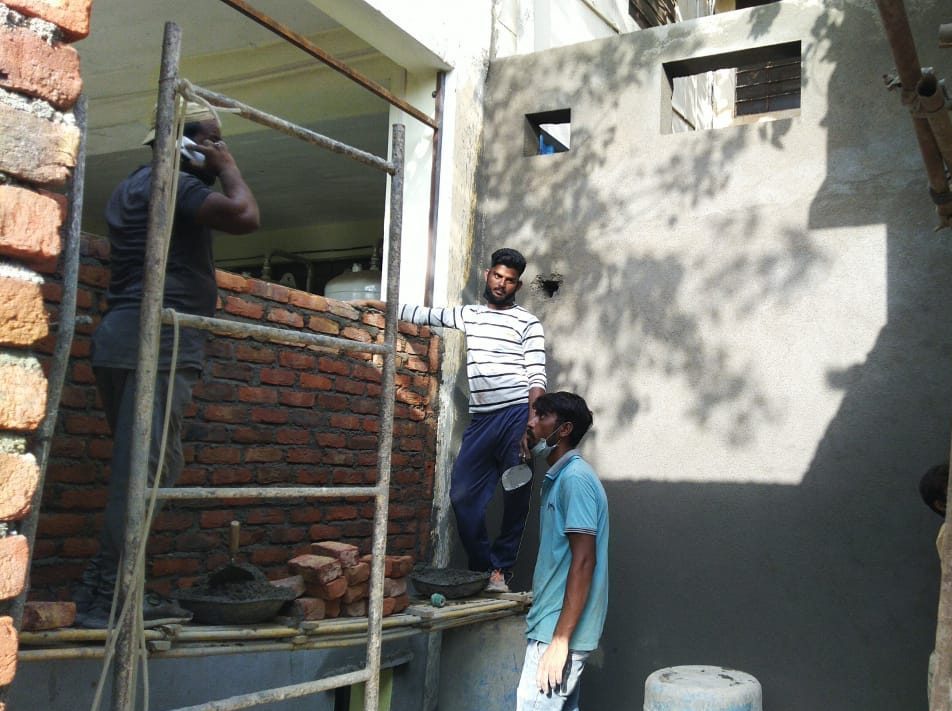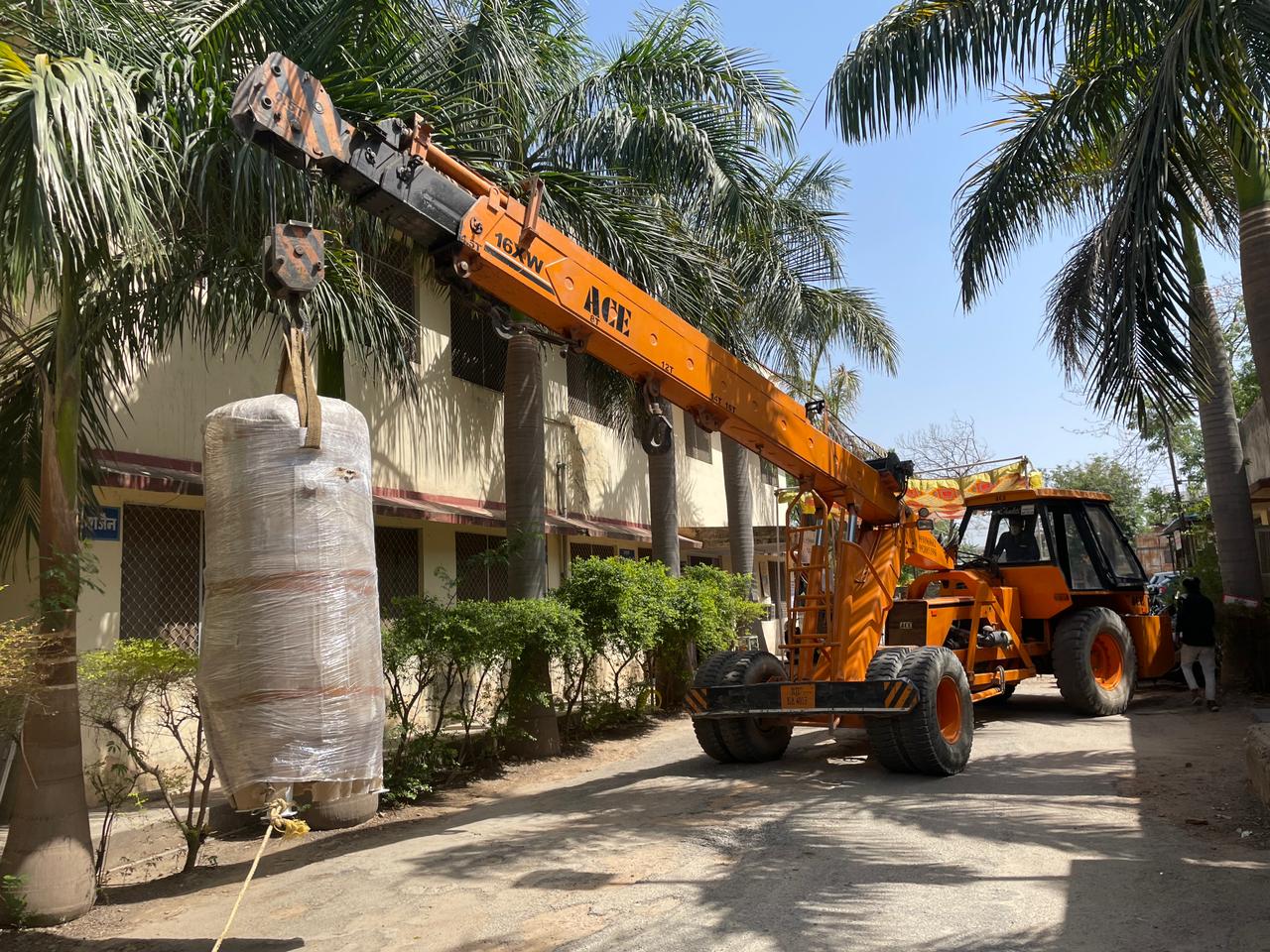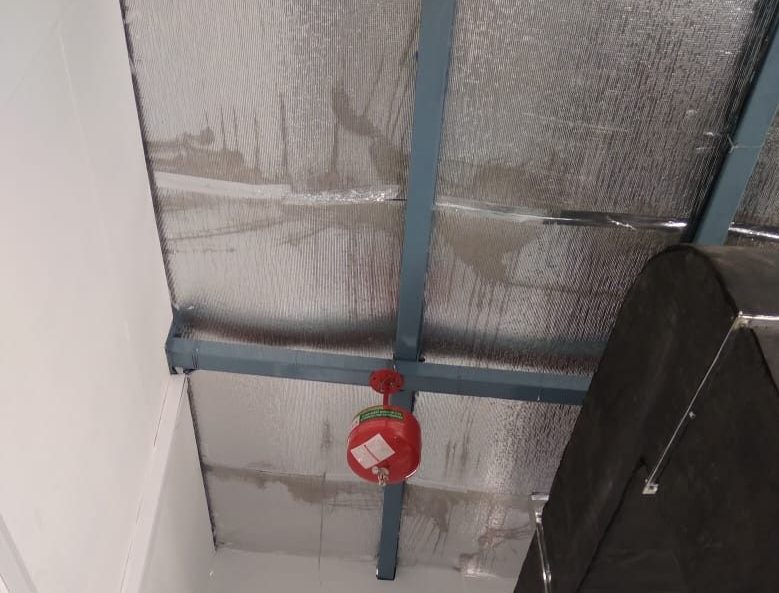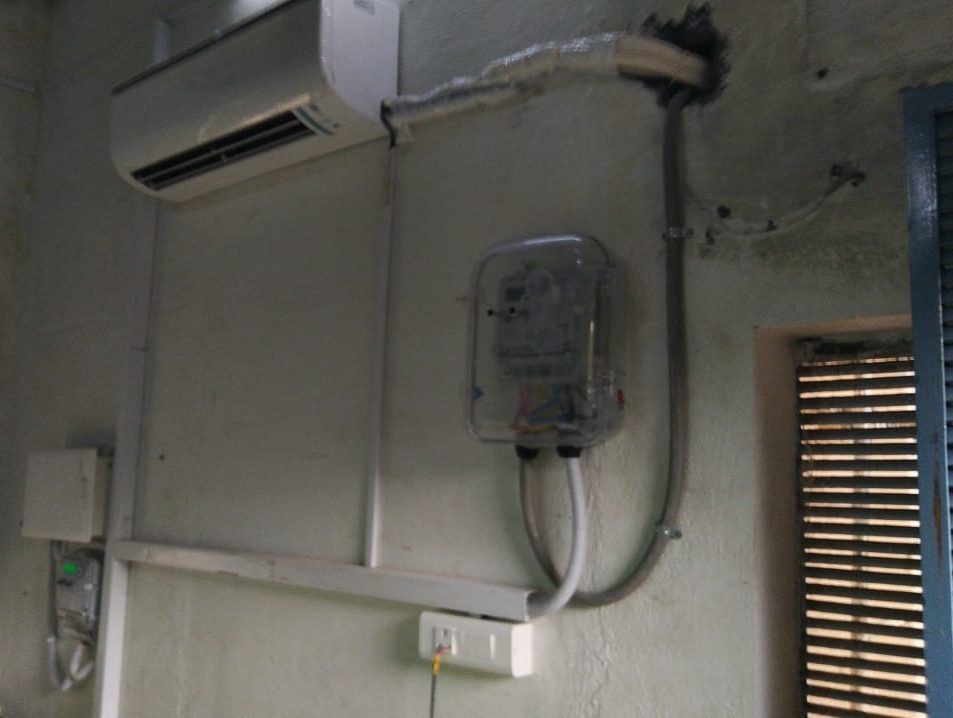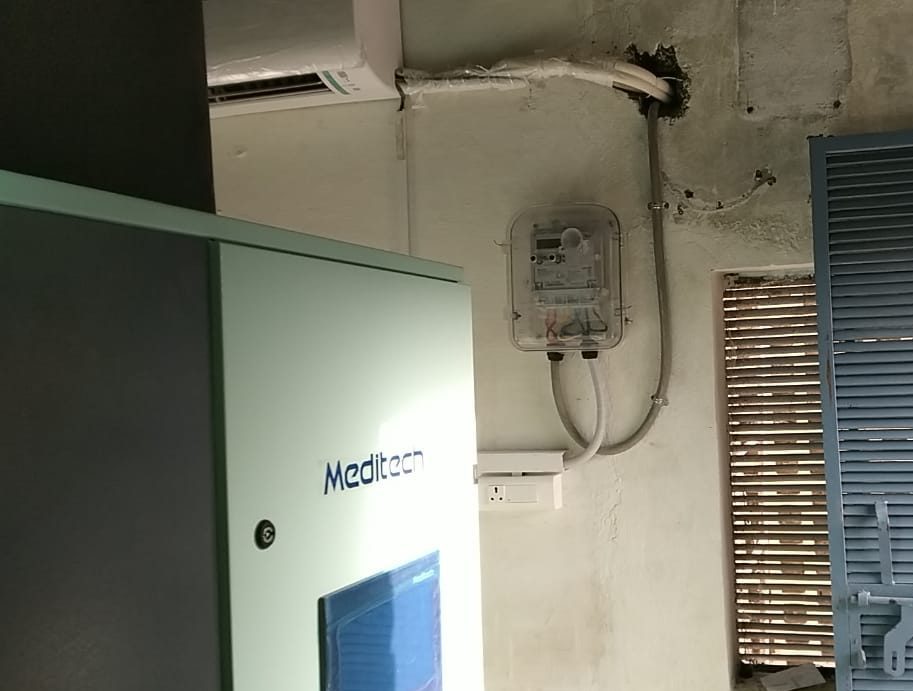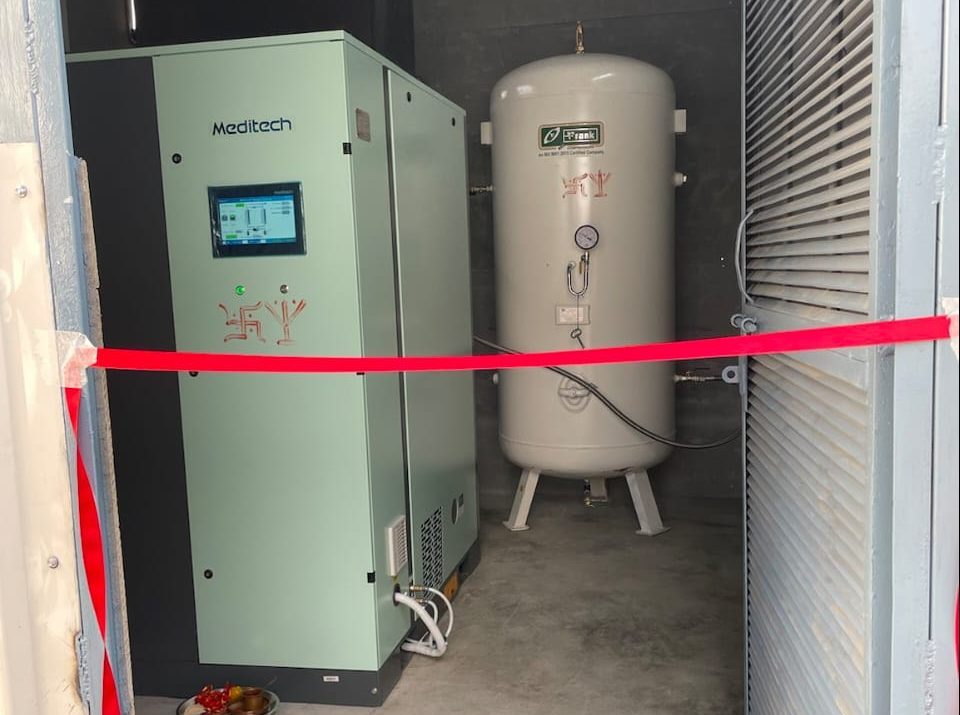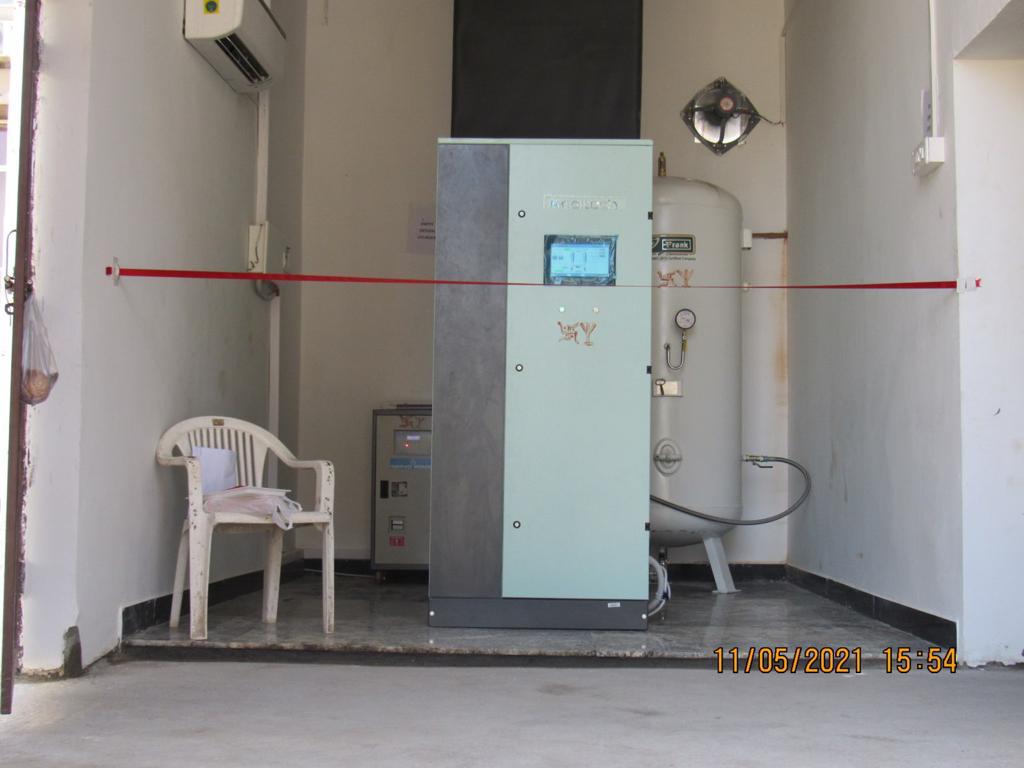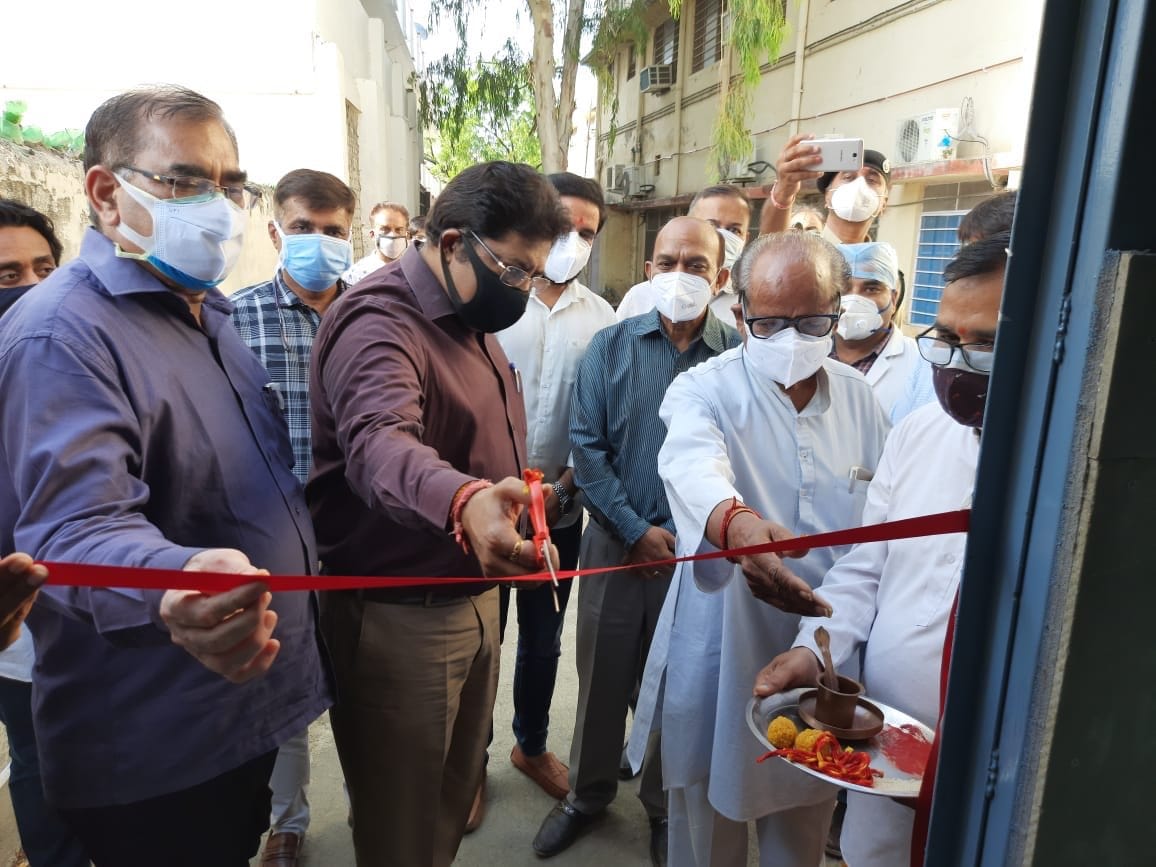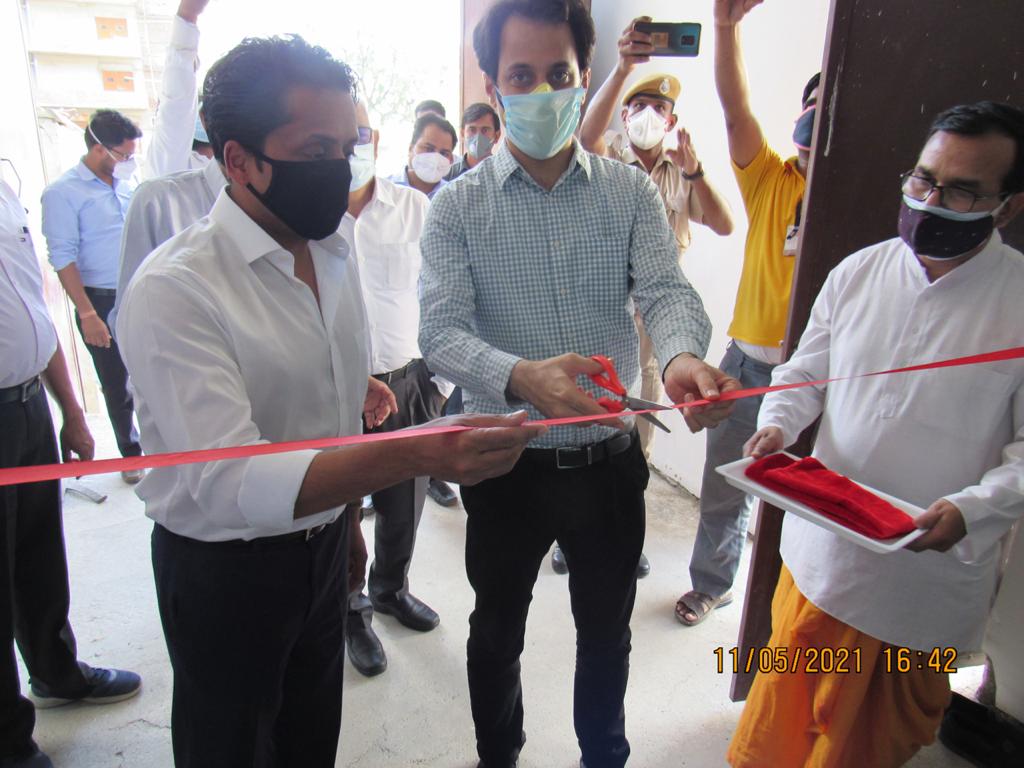“With a lift of his chin and a bit of a grin, Without any doubting or quiddit” – E A Guest
Medical-grade copper pipes and approved fitters were both in extremely short supply. With assistance from Hindustan Zinc, local administration, and air conditioning service providers, we cobbled together a team of people who worked within the hospitals alongside our teams. This activity became our critical path, with components being flown in to meet our needs.
At each site, we came across construction challenges. At Ambamata Hospital, we found that the flooring was inadequate to bear the weight of the columns, and new flooring would require a 4-5 day curing period. Thankfully, our ‘Third Space’s’ contractor stepped in, and the flooring was done in a day. In Bhilwara, insulation fell short. We immediately sourced it from another active site in Udaipur. In Banswara, we couldn’t even find a contractor willing to work in pandemic conditions at the hospital.
Teamwork, innovation, communication, and a can-do, must-do attitude reigned over the team and the myriads of people who supported us. We were all connected by a common purpose and high technology—calls, virtual meetings, group chats, video calls, etc. People came together from Australia, Hong Kong, Shanghai, Delhi, Gurugram, Bengaluru, Coimbatore, Ahmedabad, Bhilwara, Banswara, Rajsamand, Jaipur, and Udaipur. Some were Semsites; others were not.
Together, we delivered.


